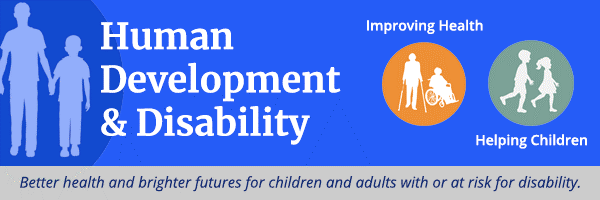DHDD Newsletter – June 2018

I was so pleased to meet many of our partners this week in Washington, DC to discuss healthy and successful transition from pediatric to adult health care for people with disabilities and/or chronic conditions. Together, we are working to improve the health of all people with disabilities, from childhood into adulthood. I’m excited to see where this takes us!
– Dr. Georgina Peacock, Director, DHDD
dhdddirector@cdc.gov
Disability Data at Your Fingertips
CDC created Disability and Health Data System (DHDS) to provide quick and easy access to data on demographics and health information for adults with disabilities. DHDS was recently updated to include new data and features that help and support users in finding the data they need to help improve the health and well-being of adults with disabilities.
Join us at the following webinars to learn more:
- Thursday, June 21, 2018, 3:00 PM – 4:00 PM ET
Beginner’s Guide to DHDS: learn the basics of using DHDS to find health differences between adults with and without disabilities.
Register here now! - Tuesday, June 26, 2018, 3:00 PM – 4:00 PM ET
DHDS: Beyond the Basics: For users who want to explore more advanced features, learn tips about utilizing the data currently available in the system, and see examples of how the data can be used to plan for disability inclusive programs and services.
Register here now!
Tourette Syndrome Awareness Month

Tourette Syndrome Awareness Month is May 15-June 15. On June 5, CDC wore teal to show support for the Tourette Association of America’s “Teal Tuesday”. People living with Tourette Syndrome often face challenges such as co-occurring conditions, discrimination, exhaustion, bullying, and uncertainty. Despite challenges, many people with Tourette are high achievers, resilient, and lead rich and fulfilling lives. Accurate diagnosis, treatment, and support for individuals and families are the key. Read the new CDC feature to learn more.

Medscape: Duchenne Muscular Dystrophy
Dr. Georgina Peacock, DHDD Director, filmed a commentary for Medscape about the importance of the updated care considerations, published in Lancet Neurology earlier this year, and its impacts on the treatment of Duchenne muscular dystrophy. Check it out here!
